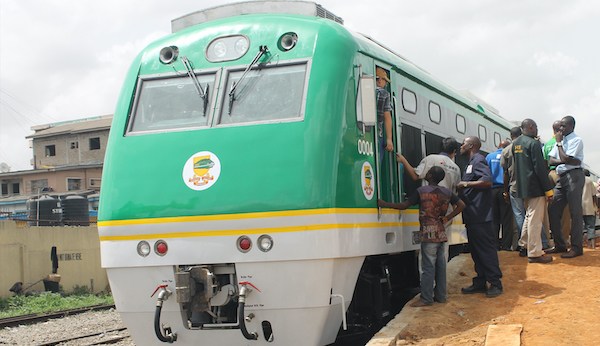Business
Railway debt service rises amid N1.31bn decline in revenue

Railway-related debt service costs the Federal Government $62.66 million in the first quarter of this year.
Data obtained from the Debt Management Office (DMO) by Ripples Nigeria on Saturday revealed that the amount was used to service debt on the Nigeria Railway Modernisation Project (Idu-Kaduna Section), Nigeria Railway Modernisation Project (Lagos-Ibadan Section) and the Nigeria Abuja Light Rail Project.
A breakdown of the figure showed that the Nigeria Railway Modernisation Project (Idu-Kaduna Section) gulped $23.1 million.
DMO disclosed the Nigeria Abuja Light Rail Project debt service costs the federal government $24.07 million and $15.49 million was expended to service the debt on the Nigeria Railway Modernisation Project (Lagos-Ibadan Section).
The total debt service on the railway projects rose by 1.50 percent or $930,000 year-on-year as the $62.66 million reported in Q1 2023 surpassed the $61.73 million spent on debt service during the same period in 2022.
Railway debt service rising amid declining revenue
Ripples Nigeria gathered that the increase in debt service comes at a period railway revenue fell by N1.31 billion in Q1 2023.
The National Bureau of Statistics (NBS) revealed that railway revenue dropped to N768.44 million in Q1 this year, below the N2.08 billion reported in the corresponding period last year.
NBS said: “In terms of revenue generation, N768.44 million was received from passengers over the period, lower by 63.02% relative to N2.08 billion in the same quarter of the previous year.”
“N181.27 million was collected in Q1 2023 as revenue from goods/cargos, up by 99.28% from N90.96 million received in Q1 2022.
READ ALSO:Nigeria’s revenue from railway drops to N5.5bn despite increase in passengers
“In addition, other receipts amounted to N34.17 million, indicating a decline of 41.02% in Q1 2023, from the N57.92 million collected in Q1 2022.”
Railway passengers are dropping
The fall in revenue was driven by low passenger volume which dropped to 441,725 from 953,099 train passengers reported in the first quarter of 2022.
This means the railway service failed to retain the service of 511,374 passengers, leading to a 53.65 percent decline year-on-year, although the number of goods that board the train increased in the same period.
“The rail transportation data for Q1 2023 showed that a total of 441,725 passengers travelled via the rail system in Q1 2023, lower than the 953,099 reported in the corresponding quarter of 2022, representing a growth rate of -53.65%.
“In addition, 59,966 tons of goods were transported in Q1 2023, compared to 39,379 tons reported in Q1 2022,” the bureau added.
Why railway service is unable to attract more Nigerians
The drop in the railway passenger volume occurred during the quarter the Central Bank of Nigeria (CBN) implemented the naira redesign policy.
CBN changed the outlook and improved the security features of the N200, N500, and N1000 notes which led to the replacement and phase-out of the old denominations.
Following the implementation on February 10, 2023, the railway management started rejecting the old naira notes, forcing many Nigerians to look for alternative modes of transportation.
Join the conversation
Support Ripples Nigeria, hold up solutions journalism
Balanced, fearless journalism driven by data comes at huge financial costs.
As a media platform, we hold leadership accountable and will not trade the right to press freedom and free speech for a piece of cake.
If you like what we do, and are ready to uphold solutions journalism, kindly donate to the Ripples Nigeria cause.
Your support would help to ensure that citizens and institutions continue to have free access to credible and reliable information for societal development.




























